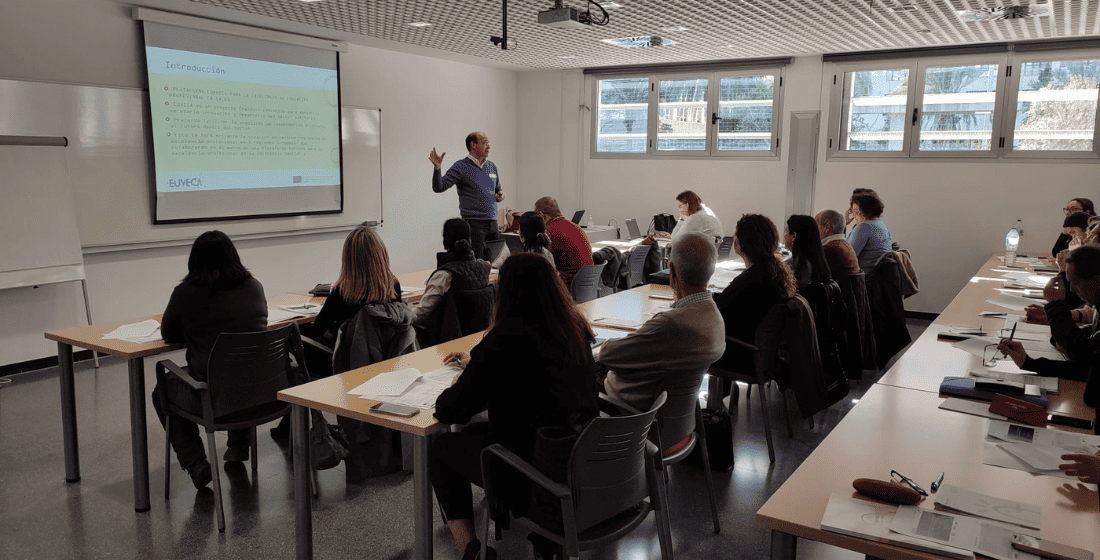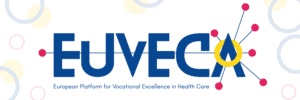An article by Silvia Prieto, Vicente Traver, Olga Navarro, Sandra Martínez
During the first meeting of the Valencian Regional Vocational Excellence Hub (RVEH) healthcare professionals identified crucial competencies for future professionals. These included:
- Empathising with the patient,
- Professional responsibility,
- Investing in digital competencies,
- Teamwork and communication,
- Greater meritocracy,
- Transformational leadership,
- Training in emotional management,
- Competencies in healthcare guardianship and patient safety.
To address the challenges in the healthcare sector, it is crucial to enhance coordination, dialogue, and cooperation among various healthcare providers, hospitals, training centres, and universities, for the training and continuous development of healthcare professionals.
On 18th January 2023, more than 30 professionals, including nurses, doctors, sociologists, psychologists, and engineers, gathered to join forces. The inaugural meeting of the Valencian RVEH, organised by ITACA of the Polytechnic University of Valencia and POLIBIENESTAR of the University of Valencia, aimed to collect healthcare professionals’ perspectives and identify their needs in university education and workplace settings. The collaborative objective of the project is to find innovative solutions that prepare current and future healthcare professionals for an increasingly complex and digitalised healthcare system.
Among the competencies identified by healthcare professionals as essential for future professionals are empathising with patients, professional responsibility, and digital skills. Furthermore, teamwork and communication with departments were also identified as important competencies as well as greater meritocracy, transformational leadership, training in emotional management, and skills in healthcare guardianship as well as in patient safety. The participating professionals also recognised some competencies that require training as they are currently underdeveloped, including self-assessment, participatory health, environmental sustainability, personal development, language and cultural competencies for diverse users, fostering group competitiveness, and mentoring on middle management.
To achieve these training objectives and have a positive impact on public health in the region, the involvement of various stakeholders is deemed necessary. This includes public administration that recognises and rewards competence, ANECA (National Agency for Quality Assessment and Accreditation of Spain), universities that focus on technical aspects but need to address other areas as well, citizens’ associations advocating for improvement, trade unions and scientific professional associations, social services managers, regulators to assess competence development, and the citizens themselves, fostering a cultural change towards engagement with healthcare centres.
Having had great motivation and enthusiasm from all the participants, the Valencian RVEH plans to convene the next meeting in the final quarter of the year to further advance this project and develop a European platform for training 21st-century healthcare professionals.


